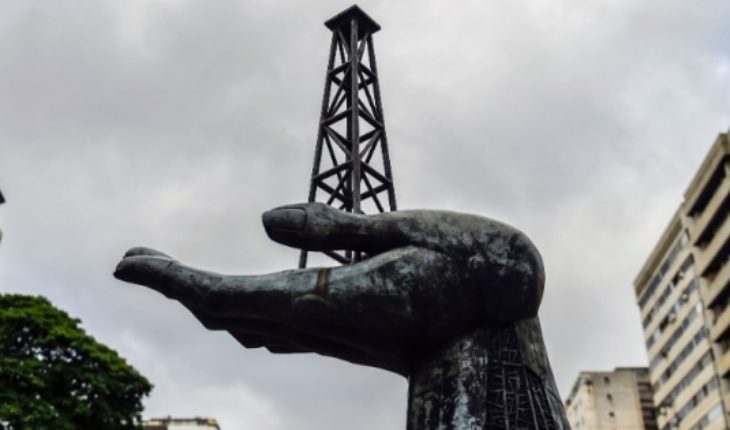while U.S. crude, Russia and Saudi Arabia are the largest producers of crude oil, Venezuela has the largest reserves: 303.000 million barrels of recoverable oil, according to OPEC. Despite the fact that it will be very difficult to remove part of this crude, Venezuela should be producing more than 1.17 million barrels a day from today. Two decades ago, the country came to add nearly 3.5 million barrels a day.
Although the recent collapse of the oil prices has exacerbated the problems in the industry, the difficulties in Venezuela began at the start of the new century, when the former President Hugo Chávez intervened in the State oil company PDVSA. Chavez dismissed managers, executives and engineers in order to exert political control over what was an independent company, directed with professionalism. Many trained experts left the country to work in other places, notably Canada.
In Chavez’s socialist economy, agriculture, manufacturing, fuel, electricity, medicines and food were to be managed by the Central Government. As oil prices reached three digits at the end of the first decade of the century and at the beginning of the second, the Government abandoned deliberately and sometimes dismantled many of the other successful industries in the country.
Initially high crude oil prices managed to hide the deterioration of what sometime was a diverse and vibrant economy. However, when oil prices began to collapse in 2014 and touched bottom in January 2016 to reach US$ 29 barrel, they came to light the economic weaknesses of Venezuela. It was a matter of time until people began to starve. This was worsened by the fact that the Venezuelan oil is particularly expensive to produce and must be mixed with diluents before exporting it. At times the country lost money due to exports.
As the economic crisis was spreading, oil industry began to collapse, workers stopped receiving their wages and drilling and refining operations were wasting. In accordance with current OPEC quotas, Venezuela can produce up to 1.97 million barrels per day, but is simply unable to do so. In addition, much of the profits obtained goes to pay interest on debts it has with Chinese and Russian entities.
The question now is if the opposition can remove control to Maduro and his allies and turn the curse of oil of the country into an economic advantage.
The fastest way in which Venezuela can put its oil to work for the benefit of people is modifying the law of hydrocarbons from the era Chavez and allowing other companies to develop their reserves. It would then have to negotiate agreements with oil international private, taking care to ensure that these agreements take into account their interests and at the same time are attractive for interested firms. Iranian errors of a few years ago are an example of what should be avoided: onerous conditions that drove off foreign oil companies and the investment needed to revive the sector. For example, Tehran insisted that foreign firms had to share its technology with Iran and that all the equipment brought into the country passed its property. It demanded that oil fields return to be controlled by the nation then begin production and companies receive a default amount of money regardless of income generated by the country through exports.
Venezuela should be open to negotiate, led by industry professionals and not the current group of cronies and military leaders.
Any investment agreement should require a payment in advance, because Venezuela needs cash to alleviate the humanitarian crisis and pay its foreign debt. However, it is equally important that the concessions include a reasonable structure of rents, rates and distribution of earnings in the long term, as the country can not mortgaging its future to the benefit of the present. A timely start of the production should be the priority, in line with the model followed by some of the initiatives of gas in Iraqi Kurdistan, so part of the crude oil to reach the market as soon as possible and increased volumes become available later. Contracts must not allow that companies do not develop their assets until the conditions are optimal for them.
Venezuela still has personal experienced and capable tanker. Any agreement must require foreign companies to give employment to persons both in oil fields and refineries, export operations and other. Ideally, the jobs would be sufficiently abundant and well-paid for several Venezuelans abroad back to the country.
An idea would be to create subsidiaries of PDVSA. Each play in a region of oil reserves or downstream operations and would seek investment separately from other countries or financial institutions. They could provide profits to investors in the form of greater shareholder value, dividends or rights to oil or products with discount.
However, none of these measures can be less that a new Government can find a way to renegotiate its huge external debts. PDVSA has problems to pay interests of the debt maintained with Rosneft, the Russian oil conglomerate. The guarantee of the debt consists of an of 49.4 percent stake in Citgo, the refiner and marketer of gas-based in the USA that PDVSA does not want to receive compensation without losing. Would not be of interest of the Americans that Russians take ownership of those shares, so a new Government in Caracas should be smart and go to Washington to facilitate the acquisition of debt with better terms by an investor from USA
Oil can revitalize the Venezuelan economy, but not to become the entire economy of the country. A truly prosperous future depends on using the abundant hydrocarbon reserves to restore the diverse economy that once transformed the nation into one of the bulwarks of Latin America.
This column does not necessarily reflect the opinions of the editorial board or of Bloomberg LP and their owners.
Poured in this op-ed content is the sole responsibility of the author and do not necessarily reflect the editorial line nor the counter position.





